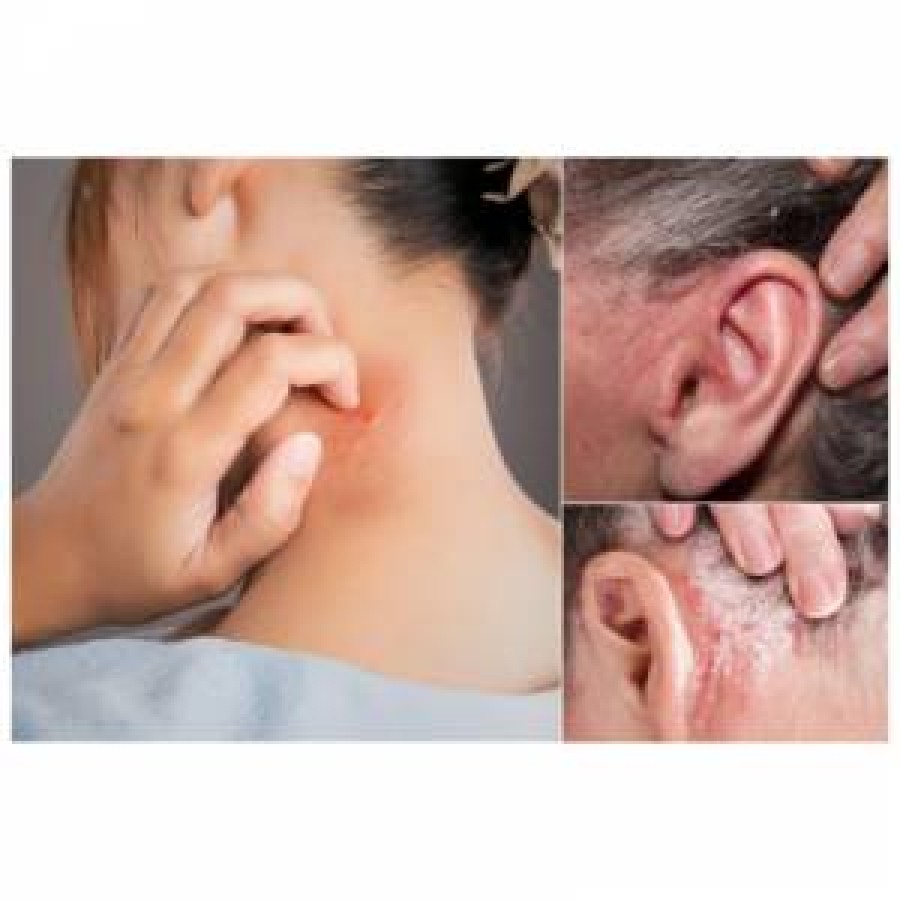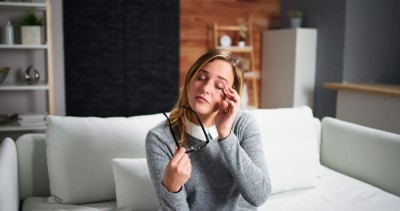Free shipping for orders over 39.00€
Everything you need to know about Psoriasis

Psoriasis is one of the “spookiest” diseases for any patient, since it is mistakenly confused with the scabies and the consequent perception that it is transmitted from person to person, a fact that has been unequivocally refuted by medical science.
So, what is psoriasis?
It is an autoimmune, chronic and non-transmitting disease that affects 2-3% of the world's population and can develop to anyone, at any time - although it occurs mainly in adults aged 20-35 years. It rarely occurs in the elderly and sometimes, there is an improvement or disappearance of the signs of the disease in people over 50 years old.
Psoriasis begins with an overstimulation of the immune system, which leads to overproduction of skin cells in the upper layer of our skin. That means that the cells in the areas of the skin with psoriasis are renewed every 4 - 6 days, in contrast to healthy skin where the cells are renewed every 28 - 30 days. Furthermore, the skin cells form hard "patches", the psoriatic plaques, that are expelled from the body in the form of scales or flakes and cause itching.
Psoriasis is mostly spotted at the elbows, knees, scalp, palms, soles and lower back. It can also appear on the genital area and nails, while its appearance on the face is very rare.
However, additionally to mild and occasional symptoms (peeling, itching), the disease also causes mental symptoms to the patient. Not only pain and itching affect life quality, there’ s emotional impact as well, caused by social ignorance, since a large part of the population is unaware that the disease is not contagious, and the patient often feels apologetic.
What causes psoriasis?
It is not entirely clear what causes psoriasis. It is not an allergic reaction of the body and is not associated with any food or diet, although when it occurs, the patient must change his eating habits.
Meanwhile, there is a connection with the lack of sun exposure - psoriasis does not easily appear in parts of the body that are exposed to it - while it worsens in winter, when our exposure to sunlight is limited or rare.
Our emotional state also seems to be a factor in the onset of the disease, although it tends to appear in both anxious and calm people. Stress, smoking, alcohol, obesity can trigger the onset of the problem. Finally, it seems that there is an inherited predisposition, as members of the same family have been observed to develop psoriasis, but this does not mean that the disease is inherited to the child by the parent.
It is certain is that the factors that trigger psoriasis are different for each person and only a dermatologist can determine what is causing the outbreaks of the disease.
What are the symptoms?
The most common symptoms of psoriasis are red spots on the skin covered with silvery scales, dry cracked skin that may bleed, itching, burning or skin sensitivity.
Is there a cure?
There is no permanent cure for psoriasis. It is a chronic condition, with periods of flare-ups and relapses, but it is treated with the available medications that are prescribed by the dermatologist for each individual case, to relieve the symptoms. The patient must come to terms that psoriasis is more likely to accompany him throughout his life, so it is important to learn to deal with it in order to live with it within the best possible way.
Advice on fighting psoriasis
Some changes in lifestyle, diet, psychology, can help reduce flares.
Adopt a new diet
Although there are no "guilty" foods that can cause or worsen psoriasis, these tips will help you to control it. Add omega-3 fatty acids, fruits, vegetables and whole grains to your diet. Keep your weight at a normal level and limit alcohol consumption.
Include exercise in your daily schedule
Exercise in a regular basis helps your health overall and, guess what, it also supports your fight against psoriasis. It does’ t matter whether you want to swim, run, cycle or danse. Choose an exercise that you really like and waste no more time. Bonus? Your mood will also change, let alone your body.
Expel stress out of your life
Let' s be honest, stress is a factor that can nullify any attempt to develop or fight a disease. Good psychology is paramount to the success or failure of an endeavor, especially when it comes to autoimmune or diseases due to genetic factors. Keep all worries away from your life and become emotionally stronger against the disease.






